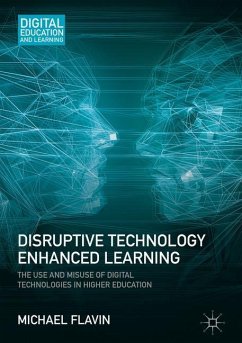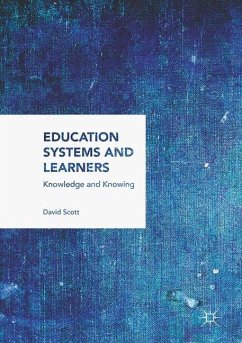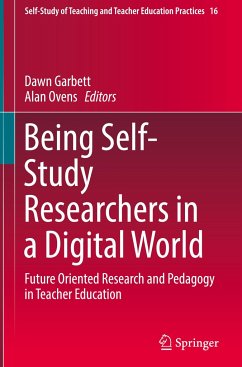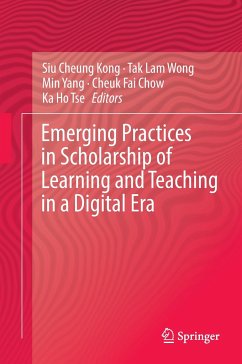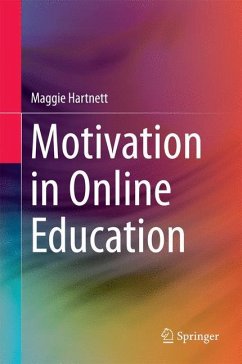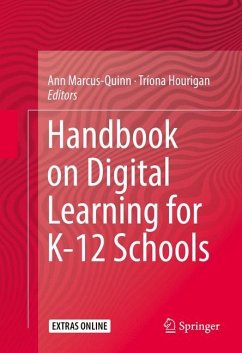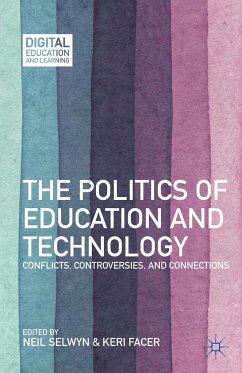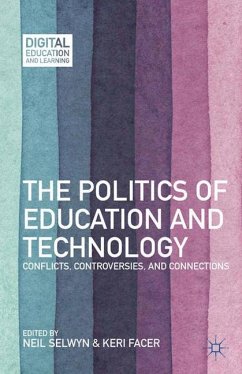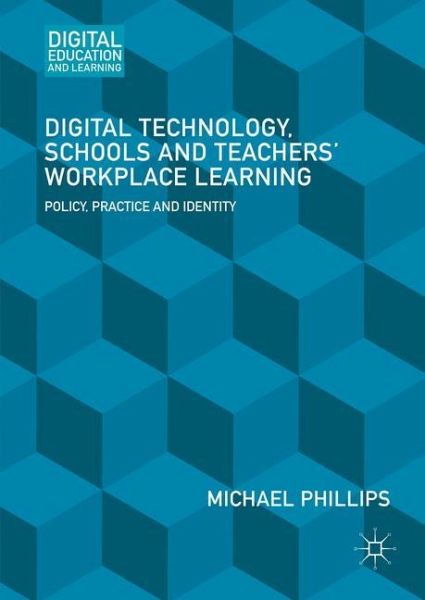
Digital Technology, Schools and Teachers' Workplace Learning
Policy, Practice and Identity

PAYBACK Punkte
22 °P sammeln!
This book advances an alternative reading of the social, political and cultural issues surrounding schools and technology and develops a comprehensive overview of the interplay between policy, practice and identity in school workplaces. It explores how digital technologies have become an integral element of the politics and socially negotiated practices of school workplaces as school campuses are now awash with digital hardware and growing amounts of school work is carried out on a 'virtual' basis.





